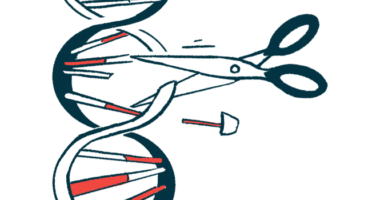Phase 1 trial of oral therapy for healthy huntingtin protein advances
Multiple ascending doses of SKY-0515 in healthy adults starting safety review

A first clinical trial of SKY-0515, an experimental treatment for Huntington’s disease, is starting to give multiple ascending doses to healthy adults randomized to the therapy rather than a placebo, Skyhawk Therapeutics, its developer, announced.
Initiation of this part of the Phase 1 trial (ACTRN12623001161617), taking place in Australia, was contingent on results from its single-ascending dose portion, where the adults were given one dose of SKY-0515 at different dose levels.
Trials testing a new drug in people for the first time will usually follow this design. The basic idea is to ensure that a single dose of the experimental therapy can be given safely, before testing if multiple doses can be safely administered.
If all goes well, Skyhawk is planning to test SKY-0515 in people diagnosed with Huntington’s.
Clinical trial of oral therapy correcting huntingtin protein production
“We are excited to announce that after successfully advancing in our SKY-0515 Phase 1 single ascending dose study, the safety review committee has recommended initiation of the multiple ascending dose portion of our Phase 1,” Douglas Faller, MD, chief medical officer of Skyhawk, said in a company press release.
“Following this, we expect to begin enrolling Huntington’s patients, who presently have few therapeutic options and none that reverse or slow disease progression,” Faller added.
Huntington’s is caused by mutations in the HTT gene, specifically a type of mutation called a CAG trinucleotide repeat expansion. This gene provides instructions for making the huntingtin protein; mutations in HTT lead to production of an abnormal form of this protein that’s thought to drive the disease.
When the HTT gene is read to make huntingtin protein, the genetic code is copied from the cell’s DNA into an intermediate molecule called messenger RNA or mRNA. The mRNA then is used as a template to make the protein.
SKY-0515 is an orally available small molecule designed to reduce production of the mutant huntingtin protein by targeting HTT gene’s mRNA molecules. The therapy’s pharmacological profile is expected to allow for once daily oral dosing, and to widely distribute the active medication throughout the brain and the rest of the body.
SKY-0515 is the first company therapy to enter clinical trials, and Faller said that it “demonstrated strong activity in our preclinical models which we believe will translate to patient benefit.”
The Phase 1 trial is meant to evaluate SKY-0515’s safety, tolerability, and pharmacological properties in healthy adults.
Its single ascending dose part was designed to enroll up to 48 people, given one of up to five doses of the oral therapy or a placebo. This part also was expected to analyze the effect of food on the therapy’s safety and pharmacological properties.
The multiple dose ascending dose part is set to recruit up to 32 healthy adults, ages 18 to 70. Participants will be given one of up to four doses of the therapy or a placebo, once a day for 14 days.
No details of the study’s portion that would include Huntington’s patients were provided in the release.







